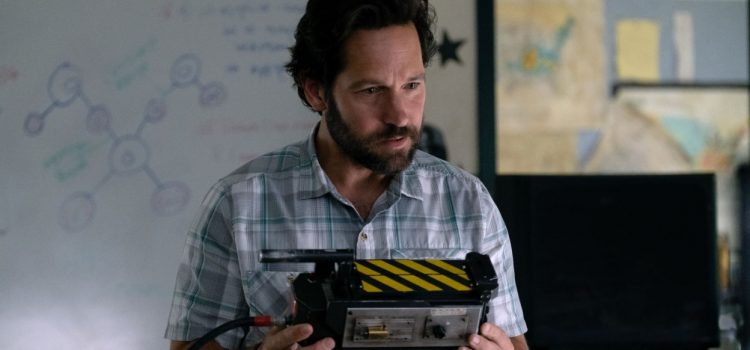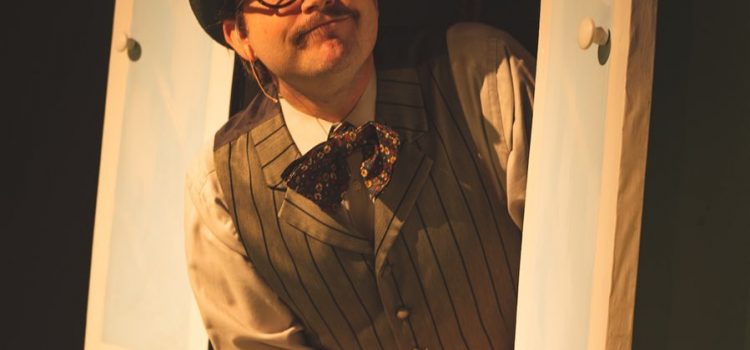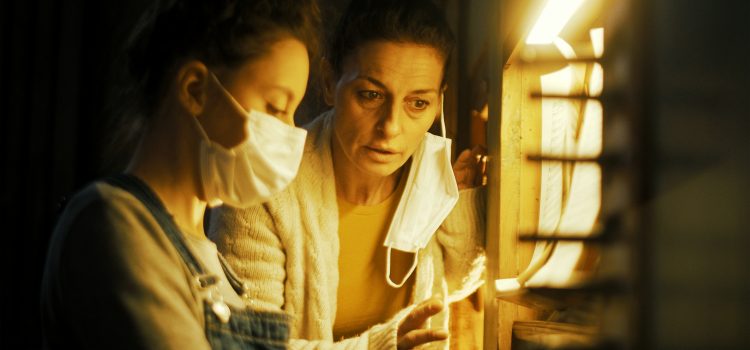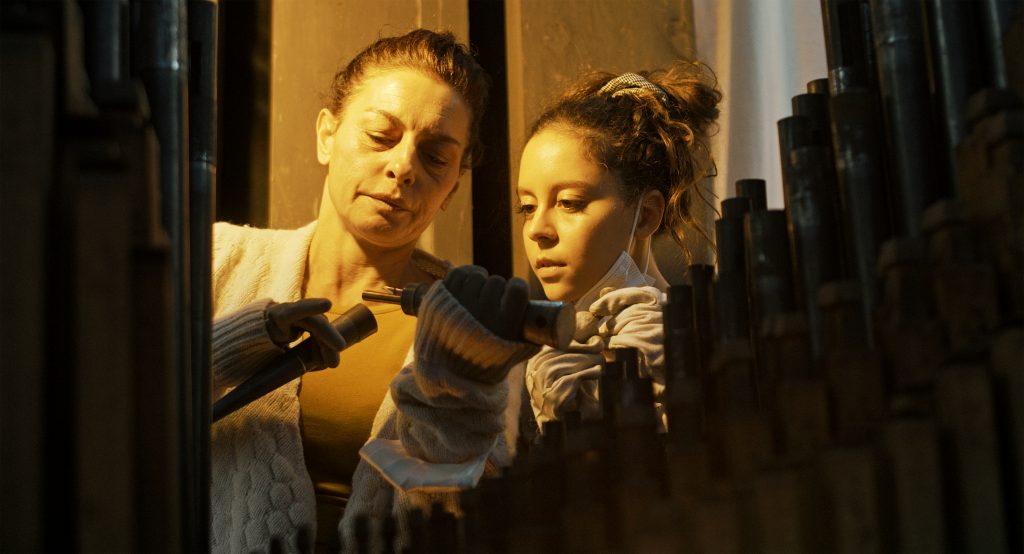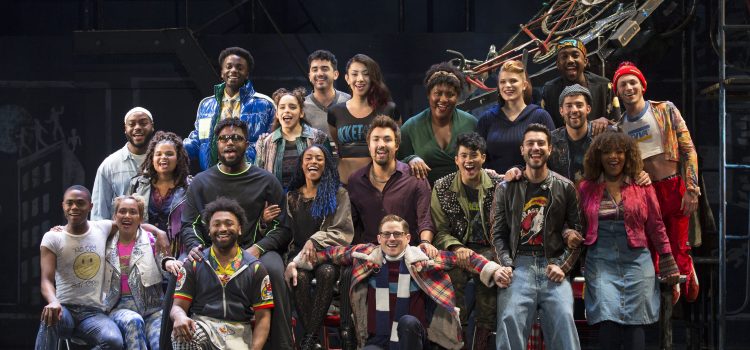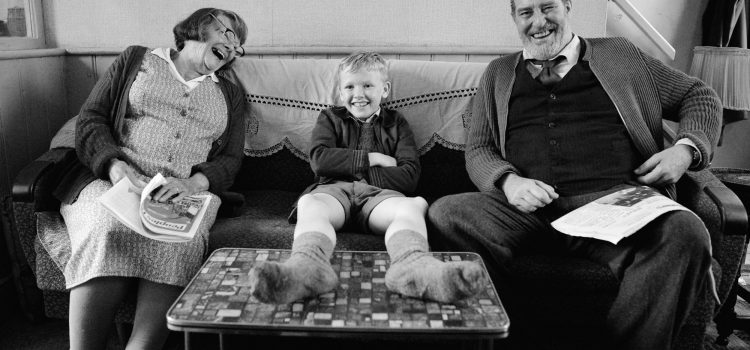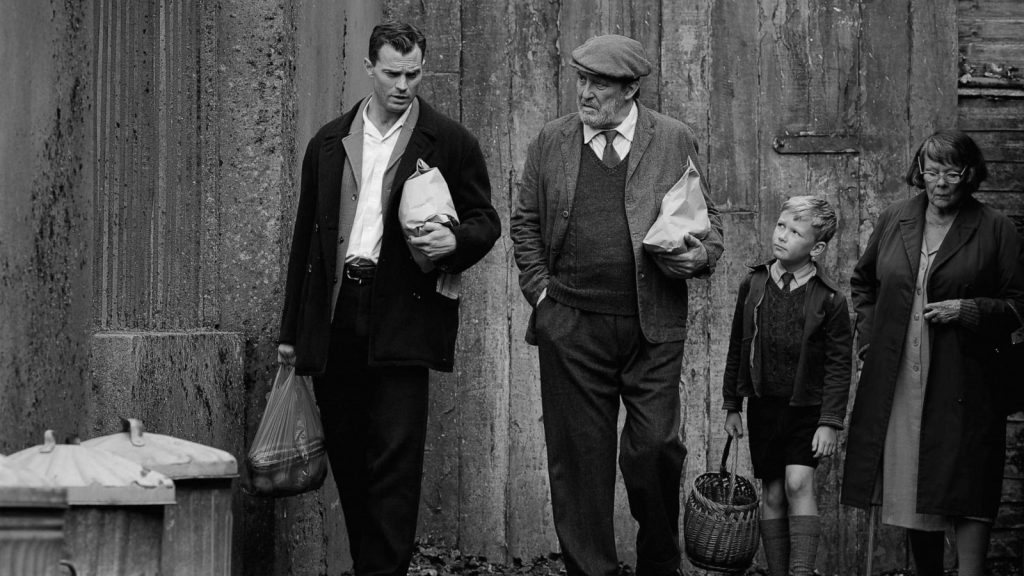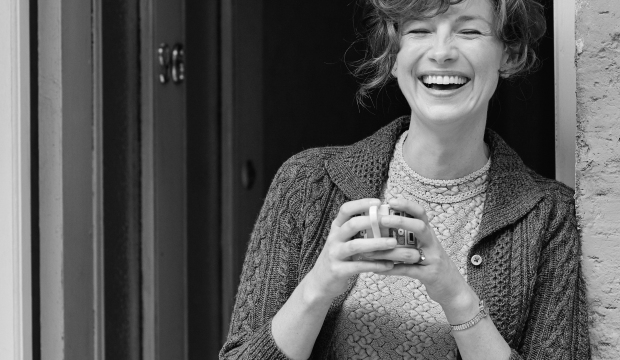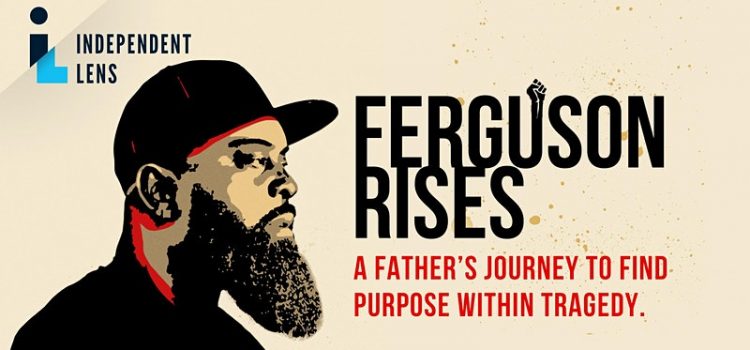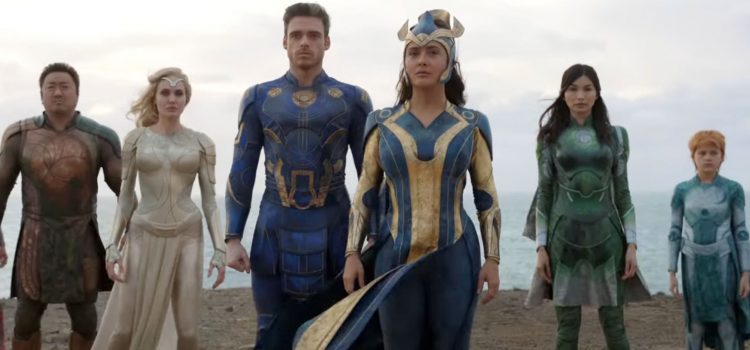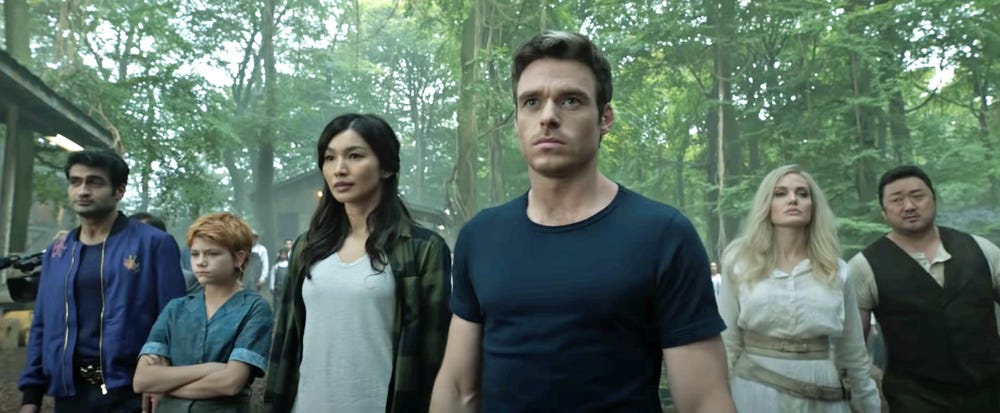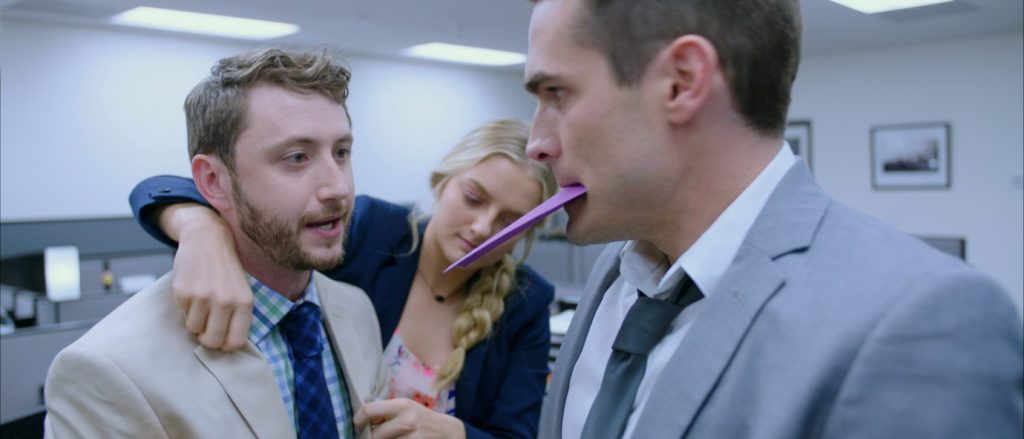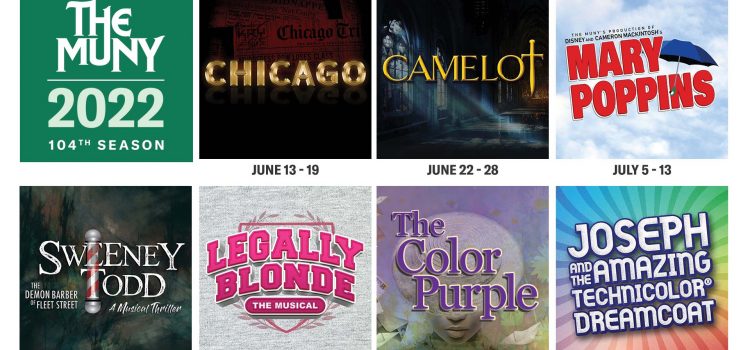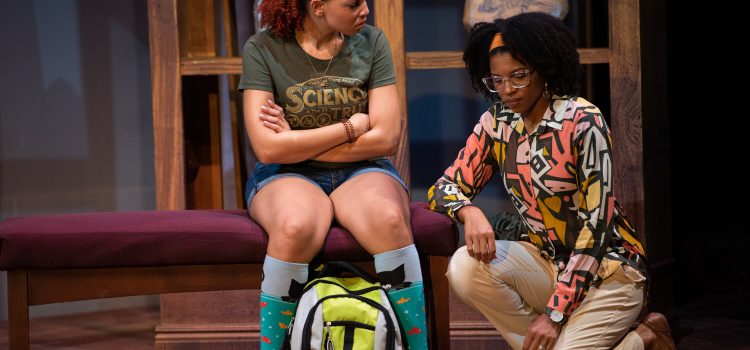By Lynn Venhaus
Just in time to ride an ‘80s nostalgia wave, “Ghostbusters: Afterlife” is a sentimental link to the 1984 blockbuster hit, an opportunity to pay tribute to the late Harold Ramis, and a reason to get the band back together.
In a nod to the film’s enduring connectiveness, director Jason Reitman is the son of Ivan Reitman, who helmed the original. He juggles the comedy, horror, and action with a special fondness for the source material. The wit is there – however, the supernatural plot is a tad sketchy at times, and the go-bigger visual effects are extended too long.
Summerville, Okla., is where Dr. Egon Spengler spent his final days, and after his death, his estranged daughter Callie (Carrie Coon) and her two children, ages 12 and 15, Phoebe (Mckenna Grace) and Trevor (Finn Wolfhard), arrive to check out the old house that is now theirs. They discover their connection to the “Ghostbusters” parapsychologists who removed ghosts in New York City and learn about the secret legacy Egon left behind.
To make it both sweet and fun, the younger Reitman – who also co-wrote the script, along with Gil Kenan (Oscar nominee for animated feature “Monster House” in 2006) – realizes this is an opportunity for a full-circle moment. He even maintains a retro look when possible.
After all, his father started the franchise off, which includes a 1989 sequel, two animated series (“The Real Ghostbusters” and “Extreme Ghostbusters”), comic books, video games “Extreme Ghostbusters: The Ultimate Invasion” and “Ghostbusters: Sanctum of Slime,” music, and a female reboot in 2016, not to mention logo and merchandise tie-ins.
The elder Reitman formed Ghost Corps with Dan Ackroyd to explore expanding the “Ghostbusters” universe, and both are producers on this second sequel.
The affection for these characters is obvious. It’s a glorious moment to see quippy marketer Dr. Peter Venkman, earnest technician Dr. Ray Stantz and steady ex-Marine Winston Zeddemore strap on the proton packs and help save the day.
As much older versions of their leaner, faster selves, Bill Murray, Dan Ackroyd and Ernie Hudson strike the right tone re-emerging as the characters who helped them become pop cultural legends. Missing their brainy partner Egon is certain to leave some misty-eyed. Although he wasn’t as prominent initially as the trio of doctors, Winston’s growth is noteworthy this time.
Appearances by Annie Potts as former assistant Janine Melnitz and Sigourney Weaver briefly as elegant Dana Barrett add to the heartfelt glow.
The towering Stay-Puft Marshmallow Man is referenced in mini-versions who break out on the shelves of a big-box store. In a standout scenes, the adorable puffs wreak havoc and have unfortunate calamities involving flame-roasting and S’mores.
The Ecto-mobile returns, as do containment units and traps, and other vintage paraphernalia. It’s a sight for sore eyes.
The likable young cast enlivens the old story through fresh eyes and an abundance of energy, with “Stranger Things” actor Finn Wolfhard engaging as skeptical grandson Trevor and Mckenna Grace endearing as smart STEM kid Phoebe, the granddaughter who is a chip off the old block. Grace, a veteran of “Young Sheldon” and “Fuller House,” is a natural actress that draws audiences in to her character.
Supporting cast includes Celeste O’Connor, so memorable in “Selah and the Spades” and “Freaky,” as local carhop Lucky that Trevor likes and Logan Kim is funny as the talkative Podcast, who is both a sleuth and a science whiz, that makes friends with Phoebe.
As the leads, the revered Carrie Coon, more known for serious stage and screen work (like Weaver was before the original), is Egon’s abandoned daughter and struggling single mom Callie. She and newly crowned “Sexiest Man Alive” Paul Rudd, who plays teacher Gary Grooberson, are thrown together in a dating scenario that’s a stretch. Comic gold Rudd, with his appealing boyish charm, is the lazy summer school faculty who pops in VHS tapes of old scary movies.
Their respected skills help them turn into the gatekeeper and the keymaster, Zuul and Vinz, although this element gets ridiculous rather quickly. The demonic dogs do the bidding of Gozer, the shape-shifter destructive enemy from the first one, whom wealthy mine owner and land baron Ivo Shandor (J.K. Simmons) had a cult-like devotion to 37 years ago – and started the whole shebang. He’s entombed in an abandoned mine that’s a haven for paranormal activity.
While he has been gone for eight years, the talents and appeal of Harold Ramis looms large over this production, and modern technology enabled the salute to have sincere emotional pull.
Second City alum Ramis, who not only starred as the intellectual Egon but co-wrote the original, first worked with Ivan Reitman on “National Lampoon’s Animal House” in 1978 and went on to write “Meatballs,” “Stripes” and two “Ghostbusters” that he helmed.
A proud graduate of Washington University in St. Louis who stayed active as an alum, Ramis died in 2014 at age 69 from complications of autoimmune inflammatory vasculitis. He is acknowledged as one of the most gifted comedy writers of his time.
At 2 hours and 4 minutes, the film could have connected the dots better between post-big city Egon and his new saving-the-world mission in the middle of nowhere.
The dirt farm setting seems an odd choice when New York City was such a major part of the storytelling back in the 1980s. In fact, the original is cited for contributing to the perception shift to a more positive outlook about the Big Apple.
The scientific mumbo-jumbo exposition starts wearing thin when the good and evil forces collide in a battle royale for souls, as dark clouds swirl and electrical currents go berserk. But then, the cavalry arrives.
The joy at seeing Peter, Winston and Ray is palpable, and hearing the effervescent “Ghostbusters” theme song, a chart-topper for Ray Parker Jr., induces warm and fuzzies.
Reitman, a multiple Oscar nominee for directing “Juno” and “Up in the Air” (writing and producing too), has crafted a work from his heart to fellow fans reconnecting with their childhood heroes.
Yet, he has dispensed gluttonous Slimer for corpulent Muncher. Nevertheless, the movie provides a family-friendly vibe and a satisfying throwback – at least enough to make you want a Hi-C Ecto-Cooler.
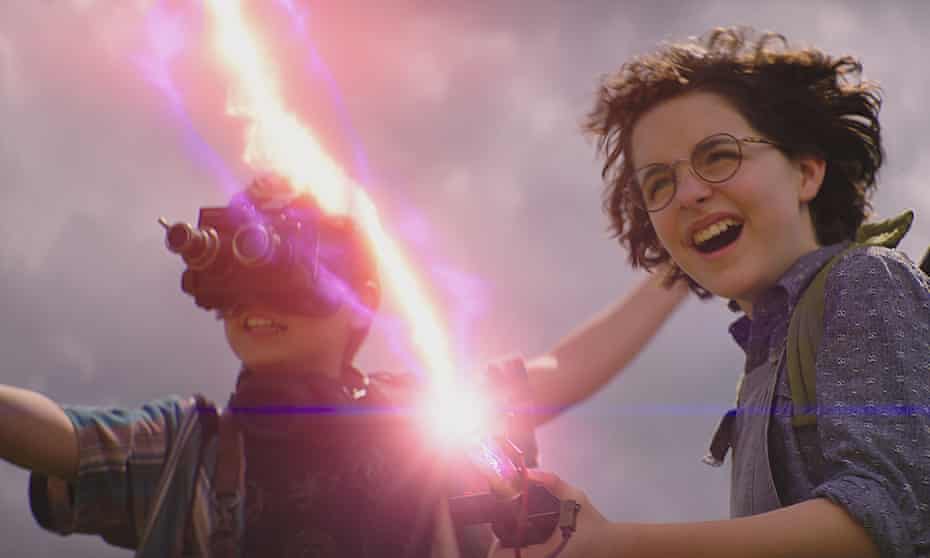
“Ghostbusters: Afterlife” is a 2021 comedy directed by Jason Reitman and starring Carrie Coon, Paul Rudd, Finn Wolfhard, Mckenna Grace, Dan Ackroyd, Ernie Hudson, and Bill Murray. It is rated PG-13 for supernatural action and some suggestive references and runs 2 hours, 4 minutes. It opens in theaters Nov. 19. Lynn’s Grade: B-

Lynn (Zipfel) Venhaus has had a continuous byline in St. Louis metro region publications since 1978. She writes features and news for Belleville News-Democrat and contributes to St. Louis magazine and other publications.
She is a Rotten Tomatoes-approved film critic, currently reviews films for Webster-Kirkwood Times and KTRS Radio, covers entertainment for PopLifeSTL.com and co-hosts podcast PopLifeSTL.com…Presents.
She is a member of Critics Choice Association, where she serves on the women’s and marketing committees; Alliance of Women Film Journalists; and on the board of the St. Louis Film Critics Association. She is a founding and board member of the St. Louis Theater Circle.
She is retired from teaching journalism/media as an adjunct college instructor.

